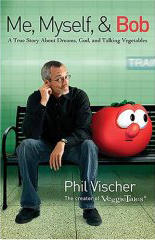Two prizes for the Spark My Muse May Giveaway!
(Use the grey arrows in the box below to see them and enter!)
Shownotes
Episode 5 – The god of Wine and re-thinking the nature of creative process

Today’s episode is about the Greek god of Wine and rethinking our ideas about the process of creation, and a better understanding the notion of “creative genius”:
Podcast: Play in new window | Download (Duration: 9:41 — 13.3MB) | Embed
Subscribe to Spark My Muse Apple Podcasts | Spotify | Email | TuneIn | RSS | Subscribe to Spark My Muse
The is show is brought to you by a resource called
Sparky’s Marketing Jump-Starter Kit.
• Click here to get it free when you use the promo code “spark“.
This kit is a quick way to understand the best free tools for digital marketing and make them work for you when you’re trying to promote your projects and creations.
(There’s only 100 available for this offer. So hurry to get yours.)
wine segment
What the Greeks thought about wine is reflected in the god of wine that they worshiped. (I don’t recommend worshiping the god of wine, or any god except the benevolent Creator.)
• Dionysus was the Greek god of wine and grape harvest
• The only god to have a mortal parent. Born from Zues’ thigh. That’s because his mother burnt to a crisp when Zues showed himself to her in his glory. Whoops.
Symposium means “drinking together”.
Additional note: These originally-small gatherings were for upper class men and with carefully imposed rules about consumption. They occured for leisure and thoughtful discussion.
• I will be offering a symposium-stlyle web-event where we will all have a glass of wine at the same time and discus a topic–possibly in July. Only patrons will get to come. This is your invitation. :)
If you want in, or you are curious about the rewards for being a sponsor of the show, go to Patreon.com/sparkmymuse
• Most of the great Greek plays were initially written to be performed at the Spring feast of Dionysus. . . .when the buds of grape leaves start to open. It was a most sacred festival.
• Dionysus was a patron of the arts!
For Greeks, Dionysus was credited with creating wine and spreading the art of viticulture (the horticulture of grapes).
• He had a dual nature; on one hand, he brought joy and divine ecstasy; or he would bring madness, brutal and blinding rage–a good depiction of the dual nature of wine.
• He was brought back to life…like grape vines that undergo brutal pruning and look dead, but then burst back to life.
• Blood and red wine are often linked for the ancients.
(Blood gives the body life, wine has powerful bodily effects.)
And now to spark your muse!
——
“All the products of a man’s genius may be temporal and corruptible, but the creative fire itself is eternal, and everything temporal ought to be consumed in it. It is the tragedy of creativeness that it was eternity and the eternal, but produces the temporal, and builds up the culture which is in time and a part of history. The creative act is an escape from the power of time and ascent to the divine…”
Today we’re thinking of the creative process as re-imagined and being “divinely co-operative”.
We (commonly) think of genius as applied to us in a personal way like a characteristic. A natural capacity, but the Greeks seem to have a much healthier view of what the process of creation is truly like…
• For the Greeks …divinity is always present.
• A genius = an unseen guardian, or custodial and protecting spirit…who gives a human inspiration: For the Greek, we each have one. (It’s not us; but it will help us.)
Three reasons why depersonalizing our part in the creative process is helpful:
1. Failure is not personal
2. Success shouldn’t cause arrogance
3. Patience and giving up control (not forcing it) will reinvorgate your creativity
What do you think?
Is the creative process a “divine cooperation”?
In the next episode we will cover “the proper rites of friendship” and skinny on “wine spritzers”.
[powerpress_playlist]





